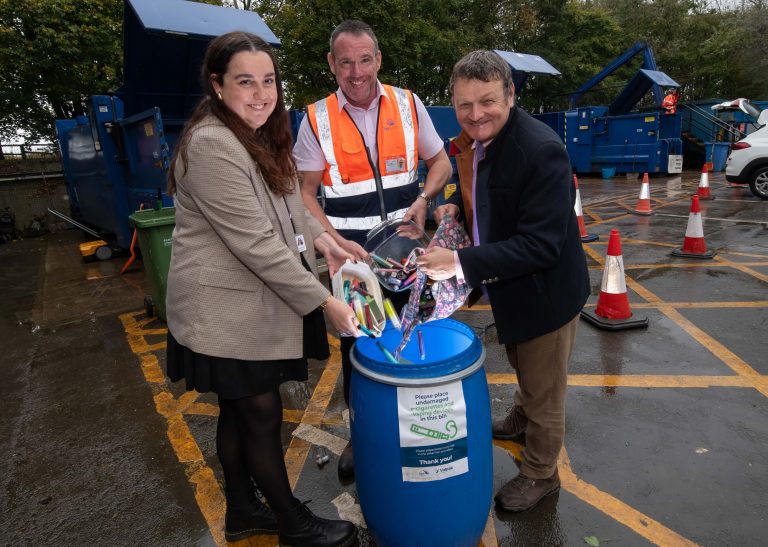Knight Frank completes duo of Yorkshire investment deals worth £6m
Yorkshire business confidence rises, as more firms plan to hire
York fitness platform secures £800,000
Heating supplier ramps up digital focus as B2B sales move online
FlexiHeat UK, a West Yorkshire-based heating systems supplier, has partnered with digital agency Digitaleer to expand its online presence amid growing demand for energy-efficient solutions and digital-first sales journeys in the B2B sector.
The move reflects a wider shift across the UK’s industrial and HVAC sectors, where procurement is increasingly driven by online research. Industry analysis reveals that over three-quarters of commercial heating purchases now involve extensive digital research before supplier engagement, a significant increase from just five years ago.
Established in 1992 and previously trading as Kroll UK, FlexiHeat UK serves commercial, industrial, and domestic markets. Its product line includes waste oil heaters, electric heating systems, and condensing oil boilers, with energy efficiency now a core selling point as businesses prioritise cost reduction and sustainability compliance.
The digital upgrade comes as SMEs across the UK face challenges in managing digital marketing due to limited in-house capacity. Recent research from the British Chambers of Commerce indicates that over a third of SMEs struggle with digital presence. At the same time, a growing share is prioritising marketing investment to bridge the gap.
The partnership aims to enhance search visibility and lead generation by showcasing FlexiHeat UK’s energy-efficient technologies, particularly relevant as energy costs remain elevated and sustainability pressure intensifies across supply chains.
Persimmon targets 150-home scheme in Pickering
Persimmon Homes has submitted a planning application to North Yorkshire Council to develop 150 homes on Firthland Road in Pickering. The scheme features a mix of two-, three-, and four-bedroom houses, with 35% designated as affordable housing.
Each home is planned to include electric vehicle charging infrastructure. The development also proposes financial contributions via a Section 106 agreement to support upgrades to local infrastructure and services. The proposal aligns with current demand trends for energy-efficient housing.
Vape ban forces stock sell-off across North Yorkshire
Businesses across North Yorkshire are being urged to clear the remaining stock of single-use vapes ahead of a nationwide ban taking effect on 1 June. Under new environmental regulations, the sale and supply of disposable vapes will be prohibited in England, Scotland, and Wales. All products sold after this date must be rechargeable and refillable.
The move aims to reduce plastic waste and limit youth access to vaping products. Trading Standards officers are encouraging retailers to sell off their existing inventory while advising consumers to shift toward reusable devices. Public health officials have reaffirmed that vaping remains a valuable tool for adult smokers seeking to quit, provided non-smokers and children are not targeted.
Waste disposal is also in focus, with lithium-ion batteries in vapes posing a fire risk if discarded improperly. Vape-specific recycling bins have been deployed across North Yorkshire’s household waste recycling centres to prevent contamination of kerbside bins and reduce landfill volume.
The shift is part of a broader public health and environmental strategy, with implications for retailers, distributors, and waste management providers operating in the region.
Wound care innovation hub to open in East Yorkshire
A £48 million wound care research centre is set to launch in East Yorkshire through a partnership led by the University of Hull and key industry stakeholders. The Wound Innovation Centre (WIC) will focus on chronic wound research and commercial development of treatments, addressing a condition that currently costs the NHS over £8 billion annually.
The project is backed by £16 million from the UK Research Partnership Investment Fund and an additional £32 million from partners including Reckitt and Polaroid Therapeutics. The WIC will operate across the University of Hull campus and Castle Hill Hospital, creating a joint research and clinical infrastructure.
The centre will serve as a national hub for skin and wound research, designed to accelerate discovery, clinical testing, and commercial application. With involvement from academia, healthcare providers, and private industry, it aims to accelerate the development and market introduction of solutions, particularly for antimicrobial resistance and hard-to-heal wounds.
The partnership aligns with Reckitt’s broader R&D interests in skin health and complements its consumer healthcare brands.
Plans submitted for £15m housing development at former Silsden school sites
Lincolnshire neurodiversity assessment provider acquired
Keys Group, a provider of specialist education and care services, has acquired ADHD 360, a Lincolnshire-based private healthcare provider specialising in neurodiversity assessments, diagnosis and treatment.
The acquisition enables Halesowen-based Keys Group to expand and diversify the specialist support it offers to children and adults across the UK. ADHD 360 delivers services for both privately and NHS-funded clients, supporting individuals with ADHD, autism and other neurodiverse conditions.
David Manson, CEO of Keys Group, said: “As waiting times for ADHD and neurodiversity diagnoses continue to grow, ADHD 360 offers an invaluable and timely service.
“Many of the individuals we support – both children and adults – are neurodiverse, and we understand the transformative impact of receiving the right diagnosis and treatment at the right time. ADHD 360’s expertise will not only strengthen our service offering, but also help us to improve outcomes for even more people across the UK.”
Trade deal puts UK’s largest bioethanol plant at risk of closure
The future of the UK’s largest bioethanol production facility, Vivergo Fuels in Saltend, East Yorkshire, is uncertain following the removal of a 19% import tariff on US ethanol. The tariff cut was part of the recent UK-US trade agreement, which has intensified pressure on domestic producers already grappling with depressed bioethanol prices.
Vivergo, owned by Associated British Foods, had already scaled back production earlier this year due to market conditions. The company has now warned that, without immediate government intervention, it may be forced to shut down operations entirely, putting more than 160 jobs at risk and halting local wheat procurement.
The Saltend facility produces bioethanol for E10 fuel, which contains up to 10% bioethanol and is used across the UK to reduce transport emissions. It also supplies animal feed as a by-product. The plant’s viability is heavily tied to stable domestic policy and pricing conditions.
Business Secretary Jonathan Reynolds has met with Vivergo and Ensus UK, the country’s other major bioethanol producer, to discuss the industry’s future. While the government has acknowledged concerns and expressed willingness to explore support options, no concrete commitments have been made to date.
The outcome may have broader implications for the UK’s low-carbon fuel strategy and domestic supply chain resilience.











